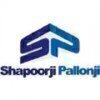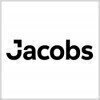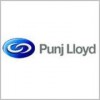Filter interviews by
TCE Engineer Trainee Interview Questions and Answers
15 Interview questions
PSV, or Pressure Safety Valve, is a critical device used to prevent overpressure in systems, ensuring safety and operational integrity.
PSV is designed to open at a predetermined pressure to release excess pressure.
Commonly used in industries like oil and gas, chemical processing, and power generation.
Example: In a steam boiler, a PSV prevents dangerous pressure buildup by venting steam.
PSVs are essential for prote...
Membrane distillation is a thermally driven separation process using hydrophobic membranes to separate vapor from liquid.
Utilizes a hydrophobic membrane that allows only vapor to pass through while rejecting liquid.
Operates at lower temperatures compared to traditional distillation, making it energy efficient.
Commonly used in desalination processes to convert seawater into freshwater.
Can be applied in wastewater t...
TCE focuses on core engineering principles while IT focuses on information technology.
TCE involves designing, building, and maintaining physical structures and systems.
IT involves managing and utilizing technology for information processing and communication.
TCE requires knowledge of mechanics, materials, and construction techniques.
IT requires knowledge of programming, networking, and software development.
Example...
My favourite subject is Mechanical Engineering because I enjoy learning about the principles of mechanics and how machines work.
I enjoy studying topics like thermodynamics, fluid mechanics, and materials science.
I like working on hands-on projects like designing and building machines or structures.
I find the problem-solving aspect of Mechanical Engineering to be challenging and rewarding.
The four pillars of OOP are Encapsulation, Abstraction, Inheritance, and Polymorphism, essential for software design.
Encapsulation: Bundling data and methods that operate on the data within one unit (e.g., a class).
Abstraction: Hiding complex implementation details and showing only essential features (e.g., using an interface).
Inheritance: Mechanism where a new class inherits properties and behavior from an existi...
I chose chemical engineering because of my passion for understanding and manipulating chemical processes to solve real-world problems.
Fascination with chemistry and its applications
Desire to work on innovative projects in industries like pharmaceuticals, energy, and materials
Interest in environmental sustainability and developing cleaner processes
Ability to apply scientific principles to practical solutions
Enjoyme...
OOPs stands for Object-Oriented Programming. Projects refer to practical applications of OOPs concepts.
OOPs is a programming paradigm that focuses on objects and their interactions.
It allows for the creation of reusable code and promotes modular design.
Projects in OOPs involve implementing real-world scenarios using classes, objects, inheritance, polymorphism, etc.
For example, a project could be developing a banki...
In STAAD, I have experience in performing structural analysis and design. For reinforcement calculations, I use the design codes and specifications to determine the required reinforcement quantities.
Performed structural analysis and design using STAAD software
Utilized design codes and specifications to determine required reinforcement quantities
Considered factors such as material properties, loading conditions, an...
Bending moment is a measure of the bending effect on a beam, shear force is the force perpendicular to the beam's axis, and buckling is a sudden failure due to compression.
Bending moment is the algebraic sum of moments about the neutral axis of a section subjected to external loads.
Shear force is the force perpendicular to the beam's longitudinal axis, causing it to shear or slide.
Buckling is a sudden failure mode...
STP treatment process involves physical, chemical, and biological processes to remove pollutants from wastewater.
STP stands for Sewage Treatment Plant.
The process involves screening to remove large objects, followed by sedimentation to settle out solids.
Biological treatment using bacteria breaks down organic matter, and disinfection kills harmful pathogens.
Final effluent is discharged into water bodies or reused f...
TCE Engineer Trainee Interview Experiences
13 interviews found
I appeared for an interview in Dec 2024.
It is easy for both aptitude and core subjects.
(1 Question)
- Q1. Most of the questions were from structural design. They also asked on geotechnical and transportation and i guess this is because i have done my internship in highway and currently doing project in geotech
(1 Question)
- Q1. This was a video round with 2 questions. About yourself? How well do you fit in the company? Skills that you posses?
Interview Preparation Tips
I applied via Campus Placement and was interviewed in Jul 2024. There was 1 interview round.
(2 Questions)
- Q1. What are the various code books used in civil engineering?
- Ans.
Various code books used in civil engineering include ACI 318, AISC Steel Construction Manual, and ASCE 7.
ACI 318 - American Concrete Institute's Building Code Requirements for Structural Concrete
AISC Steel Construction Manual - American Institute of Steel Construction's manual for designing steel structures
ASCE 7 - American Society of Civil Engineers' Minimum Design Loads for Buildings and Other Structures
- Q2. Rcc and steel basic formulas and considerations.
Interview Preparation Tips
Maintain gpa above 8.0*
Be good at communication.
Chill out don't stress while answering. U'll get ur shot.
I applied via Campus Placement and was interviewed in Jul 2024. There were 3 interview rounds.
Basic technical knowledge and aptitude
(2 Questions)
- Q1. Favourite subject
- Ans.
My favourite subject is Mechanical Engineering because I enjoy learning about the principles of mechanics and how machines work.
I enjoy studying topics like thermodynamics, fluid mechanics, and materials science.
I like working on hands-on projects like designing and building machines or structures.
I find the problem-solving aspect of Mechanical Engineering to be challenging and rewarding.
- Q2. Basic questions on that topic
(2 Questions)
- Q1. Why TCE not IT ?
- Ans.
TCE focuses on core engineering principles while IT focuses on information technology.
TCE involves designing, building, and maintaining physical structures and systems.
IT involves managing and utilizing technology for information processing and communication.
TCE requires knowledge of mechanics, materials, and construction techniques.
IT requires knowledge of programming, networking, and software development.
Examples: Ci...
- Q2. Why not further education
- Ans.
I believe gaining practical experience in a professional setting will enhance my skills more effectively than further education.
I value hands-on experience and believe it is more beneficial for my career growth
I want to apply the knowledge I have gained in a real-world setting
I prefer to learn through practical application rather than theoretical study
Interview Preparation Tips
I appeared for an interview before Feb 2024.
All basic questions of chemical engineering
(2 Questions)
- Q1. What is psv used for?
- Ans.
PSV, or Pressure Safety Valve, is a critical device used to prevent overpressure in systems, ensuring safety and operational integrity.
PSV is designed to open at a predetermined pressure to release excess pressure.
Commonly used in industries like oil and gas, chemical processing, and power generation.
Example: In a steam boiler, a PSV prevents dangerous pressure buildup by venting steam.
PSVs are essential for protecting...
- Q2. What is membrane distillation
- Ans.
Membrane distillation is a thermally driven separation process using hydrophobic membranes to separate vapor from liquid.
Utilizes a hydrophobic membrane that allows only vapor to pass through while rejecting liquid.
Operates at lower temperatures compared to traditional distillation, making it energy efficient.
Commonly used in desalination processes to convert seawater into freshwater.
Can be applied in wastewater treatm...
I applied via Campus Placement and was interviewed before Jun 2023. There were 3 interview rounds.
Quite challenging but can solve .
(2 Questions)
- Q1. Oops question on pillars
- Ans.
The four pillars of OOP are Encapsulation, Abstraction, Inheritance, and Polymorphism, essential for software design.
Encapsulation: Bundling data and methods that operate on the data within one unit (e.g., a class).
Abstraction: Hiding complex implementation details and showing only essential features (e.g., using an interface).
Inheritance: Mechanism where a new class inherits properties and behavior from an existing cl...
- Q2. OS and windows questions.
(2 Questions)
- Q1. Self introduction and why you want to join TCE
- Ans.
I am a passionate engineering graduate eager to contribute to TCE's innovative projects and grow in a dynamic environment.
Educational Background: I hold a degree in Engineering from XYZ University, where I excelled in projects related to renewable energy.
Technical Skills: Proficient in programming languages like Python and C++, and have hands-on experience with CAD software.
Internship Experience: Completed an internshi...
- Q2. Managerial question -If your manager scolds or talks negative about you infront of your colleagues how will you react?
Interview Preparation Tips
- OOPS
- OS
- DSA
I applied via Campus Placement and was interviewed in Dec 2023. There were 3 interview rounds.
All types of aptitude Questions Were Asked.
(1 Question)
- Q1. Resume Based Questions. For me it was about Networking, AWS,and core language Java.
(1 Question)
- Q1. Intro, Why TCE, How you overcome difficult Situation.
(1 Question)
- Q1. What is oops, about projects
- Ans.
OOPs stands for Object-Oriented Programming. Projects refer to practical applications of OOPs concepts.
OOPs is a programming paradigm that focuses on objects and their interactions.
It allows for the creation of reusable code and promotes modular design.
Projects in OOPs involve implementing real-world scenarios using classes, objects, inheritance, polymorphism, etc.
For example, a project could be developing a banking sy...
I applied via Campus Placement and was interviewed in Jan 2023. There were 5 interview rounds.

Simple questions that you can solve in less then 60sec
(3 Questions)
- Q1. I was from geotechnical engineering so basic and conceptual questions from geotechnical engineering.
- Q2. Types of settlement in soil
- Ans.
Types of settlement in soil include immediate settlement, primary consolidation settlement, secondary consolidation settlement, and creep settlement.
Immediate settlement occurs immediately after a load is applied to the soil.
Primary consolidation settlement happens due to the expulsion of water from the soil voids under load.
Secondary consolidation settlement is a slow process caused by the rearrangement of soil partic...
- Q3. Types of shear failure
- Ans.
Types of shear failure include ductile shear failure, brittle shear failure, and sliding shear failure.
Ductile shear failure occurs in materials that can undergo significant plastic deformation before failure.
Brittle shear failure occurs in materials that fail without significant plastic deformation.
Sliding shear failure occurs along a plane of weakness, such as a fault line in rock formations.
(1 Question)
- Q1. In Technical interview questions were from the branch you are and project related. Not bookish questions.
(1 Question)
- Q1. Simple Hr questions.
Interview Preparation Tips
- Foundation engineering
- Project
- Earth pressure
I appeared for an interview in Jan 2023.

Normal aptitude test. Easy questions. Class 10 level questions. No need for early preparation for it. If you want to join seriously here you can surely do it.
(3 Questions)
- Q1. Favourite subjects? Which projects you have done in your curriculum?
- Ans.
My favorite subjects include Thermodynamics and Structural Analysis, and I've worked on projects like a solar-powered vehicle and a bridge design.
Thermodynamics: Explored heat transfer principles in a project on energy-efficient systems.
Structural Analysis: Analyzed load distribution in a bridge design project.
Project on Solar-Powered Vehicle: Designed and built a prototype focusing on renewable energy.
Participated in ...
- Q2. What is Bending Moment, shear force, the difference between bending and buckling
- Ans.
Bending moment is a measure of the bending effect on a beam, shear force is the force perpendicular to the beam's axis, and buckling is a sudden failure due to compression.
Bending moment is the algebraic sum of moments about the neutral axis of a section subjected to external loads.
Shear force is the force perpendicular to the beam's longitudinal axis, causing it to shear or slide.
Buckling is a sudden failure mode in w...
- Q3. In STAAD what you have done? How you will do the reinforcement calculations?
- Ans.
In STAAD, I have experience in performing structural analysis and design. For reinforcement calculations, I use the design codes and specifications to determine the required reinforcement quantities.
Performed structural analysis and design using STAAD software
Utilized design codes and specifications to determine required reinforcement quantities
Considered factors such as material properties, loading conditions, and saf...
(5 Questions)
- Q1. Introduce yourself(It was also asked in technical)
- Q2. My favourite hobby is cooking so the interviewer just discussed with me what I cook ?
- Q3. The interviewer asked why I want to join TCE?
- Q4. The interviewer asked about my parents
- Q5. The interviewer was not questioning rather she was just discussing
Interview Preparation Tips
I appeared for an interview before Jan 2024.
(3 Questions)
- Q1. Sewerage system & its design parameters, formulas
- Ans.
Sewerage system design involves various parameters and formulas to ensure efficient and safe waste disposal.
Design parameters include flow rate, pipe size, slope, material, and depth.
Formulas used for sewer design include Manning's equation, Darcy-Weisbach equation, and Hazen-Williams equation.
Proper design parameters and formulas are crucial for preventing blockages, overflows, and environmental contamination.
- Q2. STP treatment process
- Ans.
STP treatment process involves physical, chemical, and biological processes to remove pollutants from wastewater.
STP stands for Sewage Treatment Plant.
The process involves screening to remove large objects, followed by sedimentation to settle out solids.
Biological treatment using bacteria breaks down organic matter, and disinfection kills harmful pathogens.
Final effluent is discharged into water bodies or reused for ir...
- Q3. Water supply & related questions
(1 Question)
- Q1. Tell me something which is not in your resume
- Ans.
I am a self-taught guitarist and have been playing for over 10 years.
I started learning to play the guitar when I was in high school
I have performed at various local events and gatherings
Playing the guitar helps me relax and unwind after a long day
Interview Preparation Tips
Top trending discussions






TCE Interview FAQs
Some of the top questions asked at the TCE Engineer Trainee interview -
Tell us how to improve this page.
TCE Interviews By Designations
- TCE Consultant Interview Questions
- TCE Assistant Manager Interview Questions
- TCE Engineer Trainee Interview Questions
- TCE Civil Site Engineer Interview Questions
- TCE Site Engineer Interview Questions
- TCE Senior Engineer Interview Questions
- TCE Graduate Trainee Interview Questions
- TCE Manager Interview Questions
- Show more
Interview Questions for Popular Designations
Overall Interview Experience Rating
based on 13 interview experiences
Difficulty level
Duration
Engineer Trainee Interview Questions from Similar Companies
TCE Engineer Trainee Reviews and Ratings
based on 16 reviews
Rating in categories
|
Assistant Manager
655
salaries
| ₹7.7 L/yr - ₹14 L/yr |
|
Senior Engineer
427
salaries
| ₹5 L/yr - ₹11 L/yr |
|
Manager
353
salaries
| ₹10.4 L/yr - ₹18.8 L/yr |
|
Senior Manager
314
salaries
| ₹13.7 L/yr - ₹24 L/yr |
|
Consultant
290
salaries
| ₹4.8 L/yr - ₹11.3 L/yr |

Tata Projects

Shapoorji Pallonji Group

Kalpataru Projects International

Nagarjuna Construction Company
- Home >
- Interviews >
- TCE Interview Questions
















